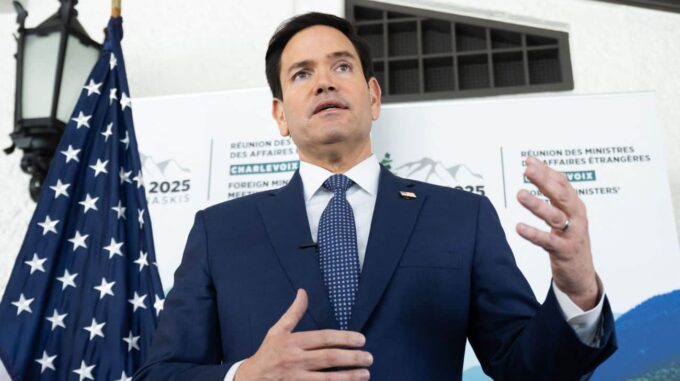U

S. Secretary of State Avoids Labeling Putin as a War Criminal: What Lies Behind the Refusal During a hearing before the House Foreign Affairs Committee of the U.S. Congress, the head of American diplomacy, Marco Rubio, made a statement that raised many questions and assumptions regarding Washington's official position on Russian leader Vladimir Putin. At the same time, he refused to call him a war criminal, leaving the response within the realm of ambiguity and diplomatic caution. Throughout the mostly tense discussion, one of the key moments concerned defining the nature of Russia’s actions in Ukraine. Democratic Congressman Bil Kiting directly asked whether Russia could be considered an aggressor in the context of the war. In his reply, Rubio did not deny the invasion, confirming: "Yes, Russia invaded Ukraine. They invaded, yes." However, the segment then shifted to a contentious and delicate topic: the personal responsibility of Putin. Kiting persistently asked whether Putin could be recognized as a war criminal and whether the U.S. is engaging in negotiations with this leader. The Secretary of State responded that, in his words, hostilities already contain signs of war crimes but emphasized that the main goal now is to end the conflict. “If we look at what happened there, we can certainly characterize it as war crimes, but our aim is to end the war,” Rubio said, avoiding a direct answer regarding Putin’s personal responsibility, including whether he should be recognized as a war criminal. After several repeated queries from the congressman, the Secretary remained within diplomatic ambiguity, stressing that it is currently important to end the war rather than speculate about potential accountable parties. This position drew criticism and underscored the difficulty of forming a clear international assessment of Russia’s current aggression. On the other hand, earlier, on May 7, U.S. Secretary of the Treasury Scott Bessent, when asked about recognizing Putin as a war criminal, confirmed that Washington holds that opinion. This sparked discussions in the media and among analysts, who noted that perhaps it is precisely Washington's desire to avoid a direct and unequivocal statement to maintain flexibility in diplomatic relations and negotiations. It was also reported that the U.S. supposedly opposed including in the G7 summit’s final statement formulations that directly accuse Russia of initiating an aggressive war and pledge further support for Ukraine. This indicates the American administration’s desire to maintain diplomatic restraint and avoid unnecessary escalation within international institutions. Thus, the overall situation regarding Putin’s status remains complex and layered — on one side, the official U.S. position reflects a desire to end the war; on the other, there is continued uncertainty about how to classify the actions of the Russian leader on the international level. This diplomatic caution raises additional questions about Washington's future steps in the context of global security and the legal condemnation of war crimes.

